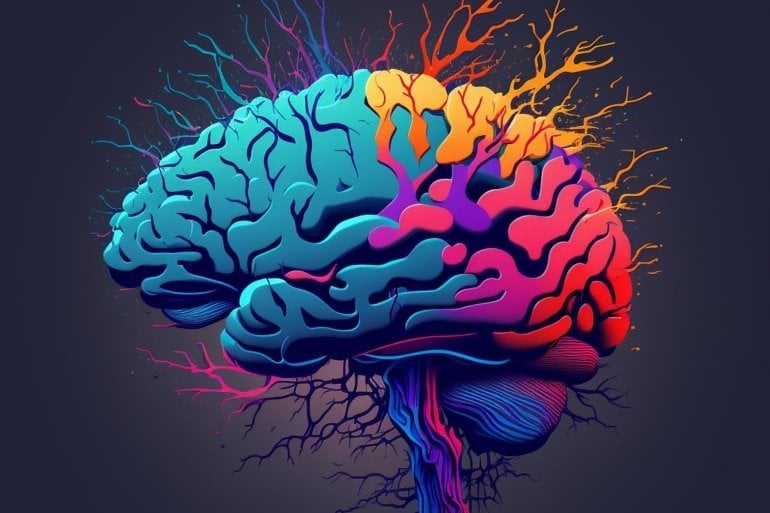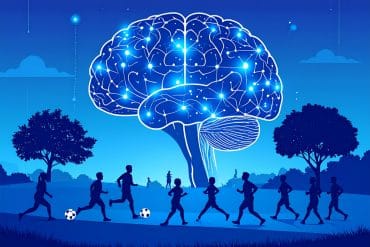Summary: Higher levels of immune proteins are present in the blood both before and after an epileptic seizure. Researchers say the biomarkers can be identified via a simple blood test.
Source: Lund University
Researchers from Lund University in Sweden have discovered higher levels of immune proteins in the blood before and after an epileptic seizure. The possible biomarkers can be identified using a simple blood test.
Diagnosing epilepsy is currently resource intensive, and distinguishing it from other conditions can be challenging. Better diagnostic methods as soon as the patient seeks medical care after a suspected seizure are therefore an urgent necessity.
Epilepsy is the collective name for abnormal activity in the brain that causes temporary loss of control of behavior and movement. The condition can be congenital, be caused by a tumor, stroke or infection in the brain and cause very different symptoms depending on which part of the brain the episode begins in or spreads to. Inflammation processes that start as an immune response in the body can also provoke a seizure.
That is why researchers started to look for possible biomarkers for epilepsy within the immune system. Previous studies exist, but the results have so far been mixed and difficult to interpret:
“In our study, we have a carefully selected group of participants and we have a lot of background information on each person. We have also taken into account a number of confounding factors that may affect the immune system such as other neurological and immunological illnesses, infections and various psychiatric conditions,” says Christine Ekdahl Clementson.
She is a group leader and associate professor at Lund University and a Consultant in Clinical Neurophysiology at Skåne University Hospital. Her focus is on advanced epilepsy investigations and she has led the research study. The research team have also compared epileptic seizures with what are known as psychogenic non-epileptic seizures.
Psychogenic seizure is a psychiatric diagnosis that manifests itself through clinical symptoms that can easily be mistaken for epilepsy. It is a chronic condition that is believed to be underdiagnosed and as a result is often mistakenly treated with epilepsy medication. That is why there is a great need to be able to distinguish between the conditions more easily.
“The investigation to establish whether someone is suffering from epilepsy or is affected by psychogenic seizures is resource intensive. It may require the patient to be admitted to hospital for several days with constant video and EEG surveillance, with medical staff on hand around the clock. It is hard on the patient that it takes time to reach a diagnosis,” says Marie Taylor, physician and doctoral student in the research team.
Researchers discovered that levels of five inflammation markers—proteins—were elevated acutely in people who had experienced an epileptic seizure.

“We call these markers ‘fingerprints’ since they involve several inflammation-related proteins with different reaction patterns. The patients who had epilepsy showed raised levels of one of the five proteins—IL-6—even before their seizures, a value that transiently raised even further directly after the seizure,” says Marie Taylor.
Among patients with psychogenic seizures, however, there was no change in the biomarkers. This might mean that a simple blood test on a patient arriving at A&E after a seizure can show whether the immunological response is elevated. If it is not, there is a greater chance that it is a matter of a psychogenic seizure, which provides a first indication of how the patient should be further assessed.
“The next stage is to repeat our studies on a broader and less homogenous patient group, where we investigate the ‘fingerprint’ in adults with epilepsy. We also want to see whether the biomarkers respond in the same way in children, where the causes of epilepsy are more often genetic.
“We are doing this through an ongoing study in Lund, in collaboration with child and adolescent psychiatry as well as pediatric neurology,” Christine Ekdahl Clementson concludes.
About this epilepsy research news
Author: Press Office
Source: Lund University
Contact: Press Office – Lund University
Image: The image is in the public domain
Original Research: Open access.
“Immune response in blood before and after epileptic and psychogenic non-epileptic seizures” by Matilda Ahl et al. Heliyon
Abstract
Immune response in blood before and after epileptic and psychogenic non-epileptic seizures
Highlights
- Elevated IL-6 levels in serum in patients with temporal and frontal lobe epilepsy
- Altered postictal-interictal ratio of immune factors in serum after temporal but not frontal lobe seizures
- No change in IL-6 levels in serum in patients with psychogenic non-epileptic seizures
Abstract
Inflammatory processes may provoke epileptic seizures and seizures may promote an immune reaction. Hence, the systemic immune reaction is a tempting diagnostic and prognostic marker in epilepsy.
We explored the immune response before and after epileptic and psychogenic non-epileptic seizures (PNES). Serum samples collected from patients with videoEEG-verified temporal or frontal lobe epilepsy (TLE or FLE) or TLE + PNES showed increased interleukin-6 (IL-6) levels in between seizures (interictally), compared to controls.
Patients with PNES had no increase in IL-6. The IL-6 levels increased transiently even further within hours after a seizure (postictally) in TLE but not in FLE patients. The postictal to interictal ratio of additionally five immune factors were also increased in TLE patients only.
We conclude that immune factors have the potential to be future biomarkers for epileptic seizures and that the heterogeneity among different epileptic and non-epileptic seizures may be disclosed in peripheral blood sampling independent of co-morbidities.






